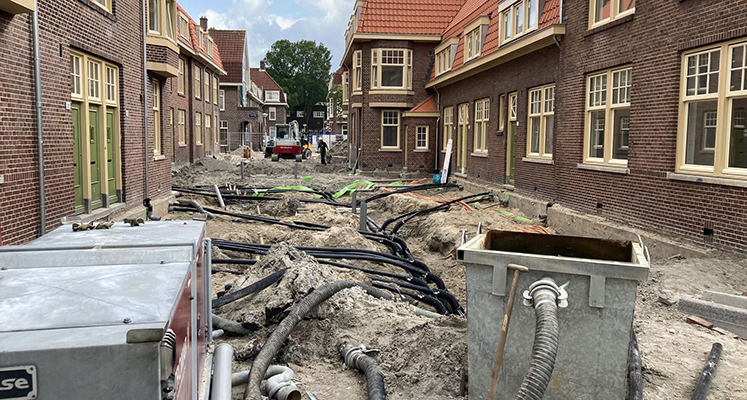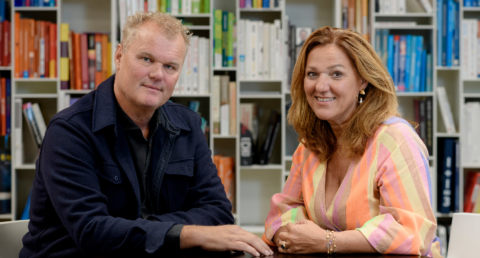Housing corporations in Amsterdam are pushing the pause button on district heating connections in existing homes. For the time being, they will again install central heating boilers in preserved and well-insulated social housing. "The alternative energy source district heating has become unaffordable for residents due to extreme price increases of the standing charge by energy company Vattenfall ," the corporations write.
"The energy transition consists of a number of steps. Insulate and switch to a gas-free source. The first succeeds, the second is now unaffordable for our tenants," said Anne-Jo Visser of the Amsterdam Federation of Housing Corporations. "Thousands of older homes with poor energy labels are renovated, insulated and made more sustainable every year by housing corporations in Amsterdam. An enormous task. When we're done, residents actually get an 'old new home.' And while we're at it natural gas out, alternative energy source in."
Increase in rates
In Amsterdam, that alternative energy source is often a connection to district heat combined with electric cooking. Corporations made an agreement with the municipality and Vattenfall that residents will not pay more for the city heat standing charge than for a gas connection: the "no-more-than-other principle. "An excellent arrangement," Visser says. "Until Vattenfall unilaterally decided late last year to increase the tariffs by 33 percent. Residents pay 200 euros more per year as a result. And then the energy consumption comes on top of that; the variable costs barely fall, compared to last year's price ceiling. There is no tenant who agrees to make his or her house more sustainable if afterwards you pay more than double for a connection to district heat, compared to gas. And that's very understandable."
Consequently, the price difference between gas and district heat is completely out of line. "That was absolutely not the deal. Sustainability should not come at the expense of affordable housing. And certainly not for the lowest incomes. We started discussions about this with Vattenfall, the municipality and the government. Unfortunately, we did not reach an agreement. Therefore, we were forced to make the decision to discontinue the switch to district heating wherever possible for the time being. We are now looking at natural gas-fired central heating boilers or other sustainable heat sources on a project-by-project basis. Only when national regulations are in order and district heating is and remains affordable for tenants will we start looking at this alternative again. "
Support
The Amsterdam corporations hope that the City of Amsterdam and politicians in The Hague can still change Vattenfall's mind. Visser: "We are realistic. The energy transition is not free. Not for anyone. But we cannot allow the bill, contrary to all agreements, to fall directly or indirectly on the lowest incomes. We expect from the government that there will be a contribution for the transition to sustainable alternatives so that housing corporations and heating companies do not end up in the minus. And that there is a transparent and clear cost structure for district heating, so that no more unexpected costs are included in the standing charge. And just as important: that for people on low incomes there will be an allowance if the sustainable alternative is more expensive than natural gas. "












